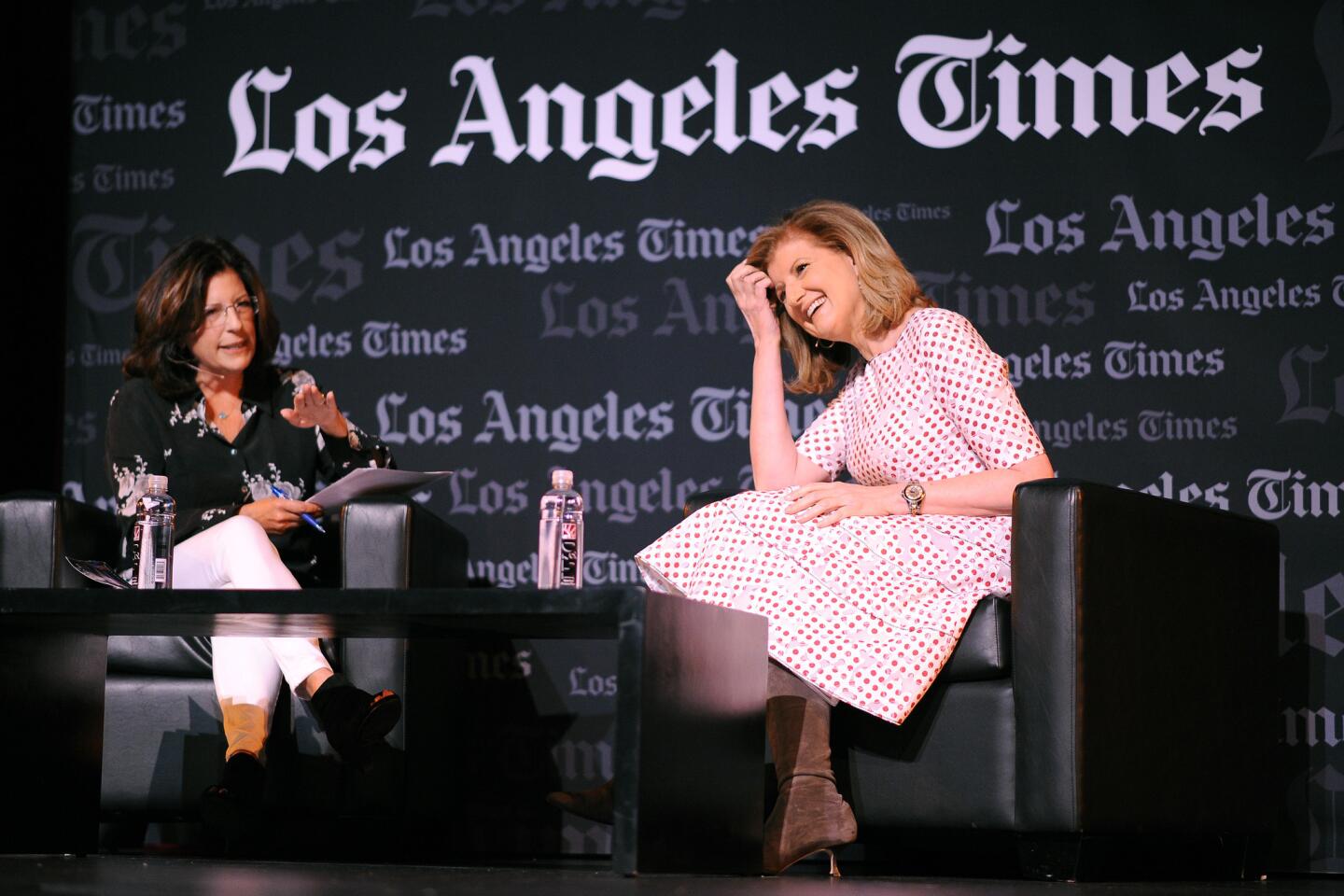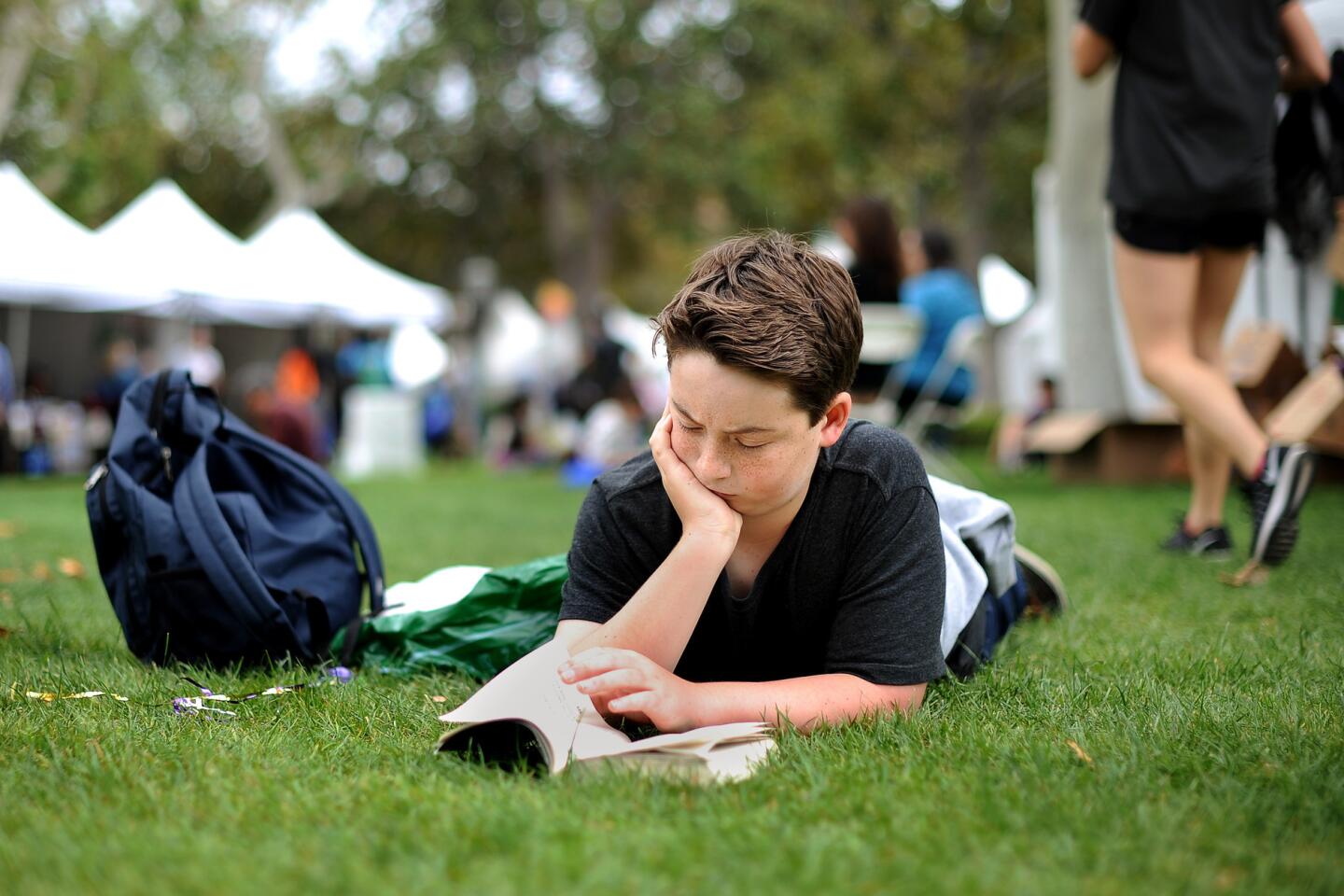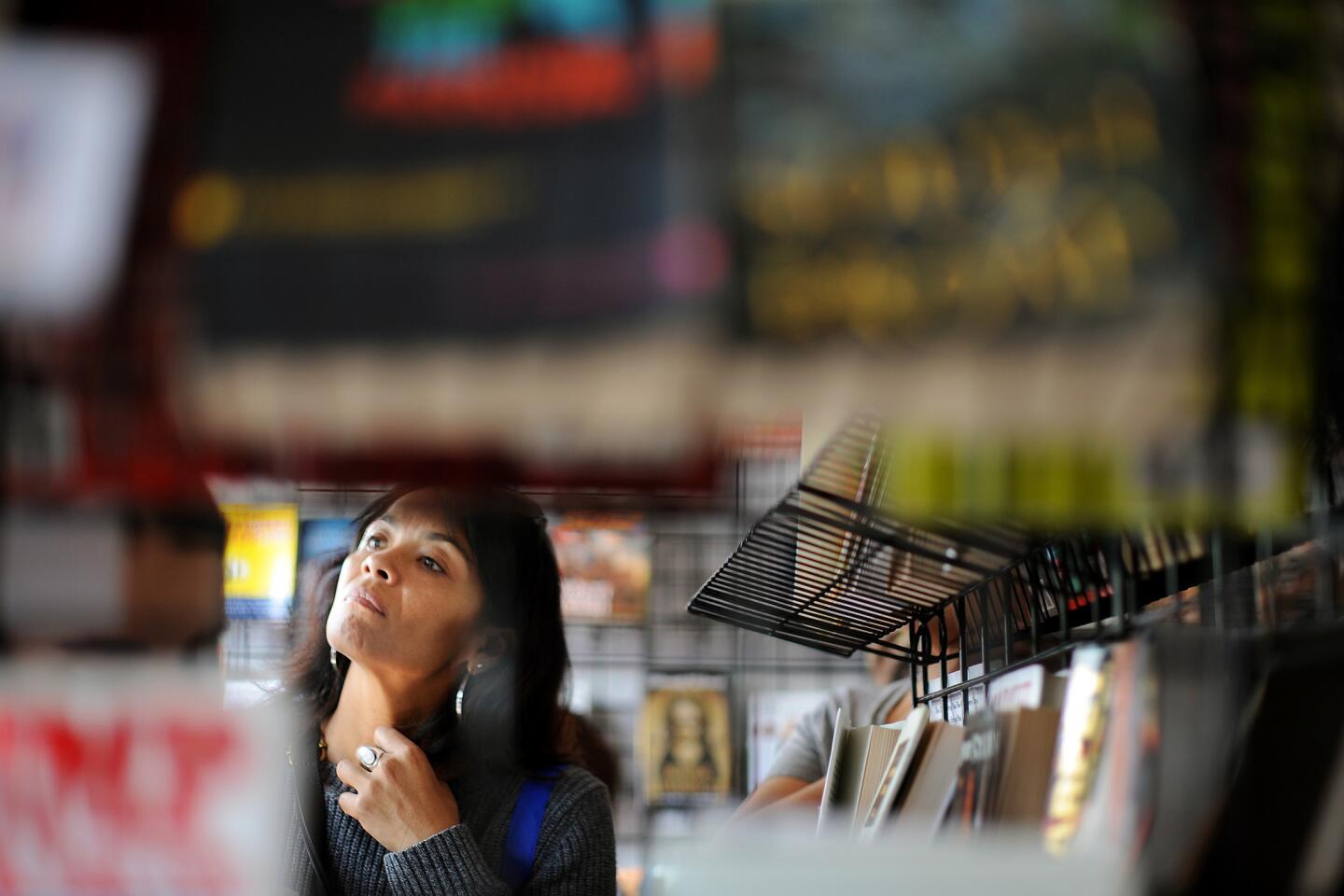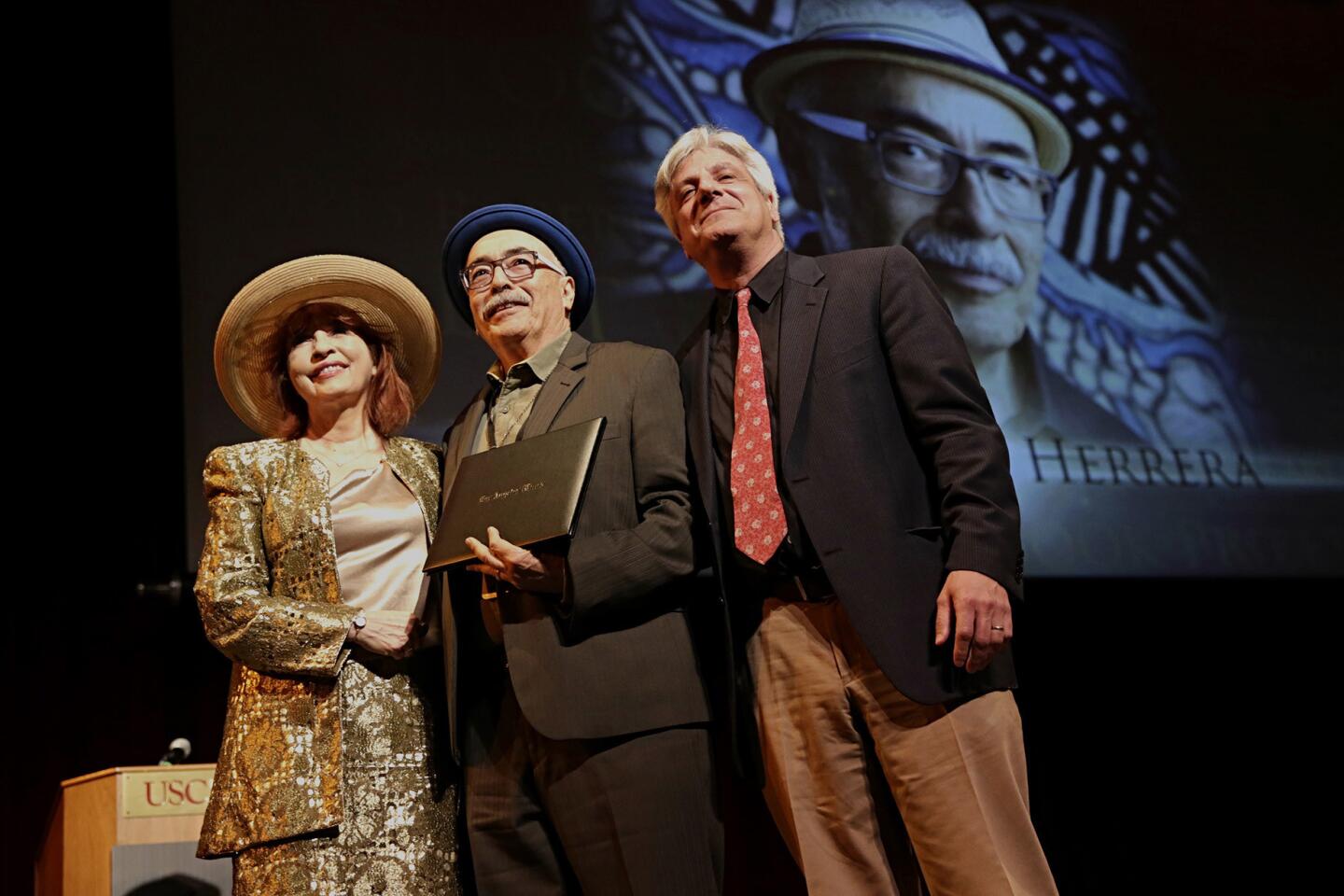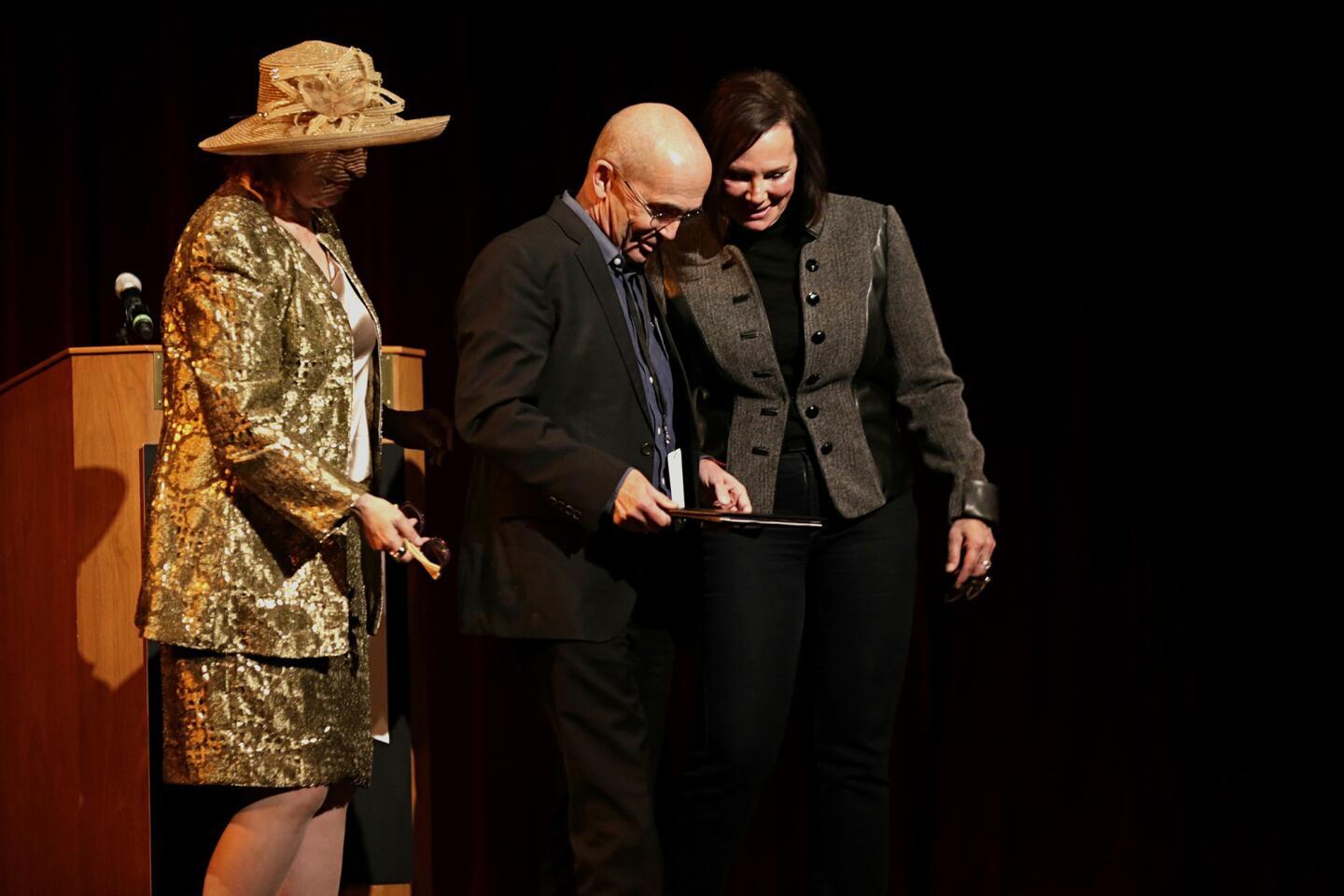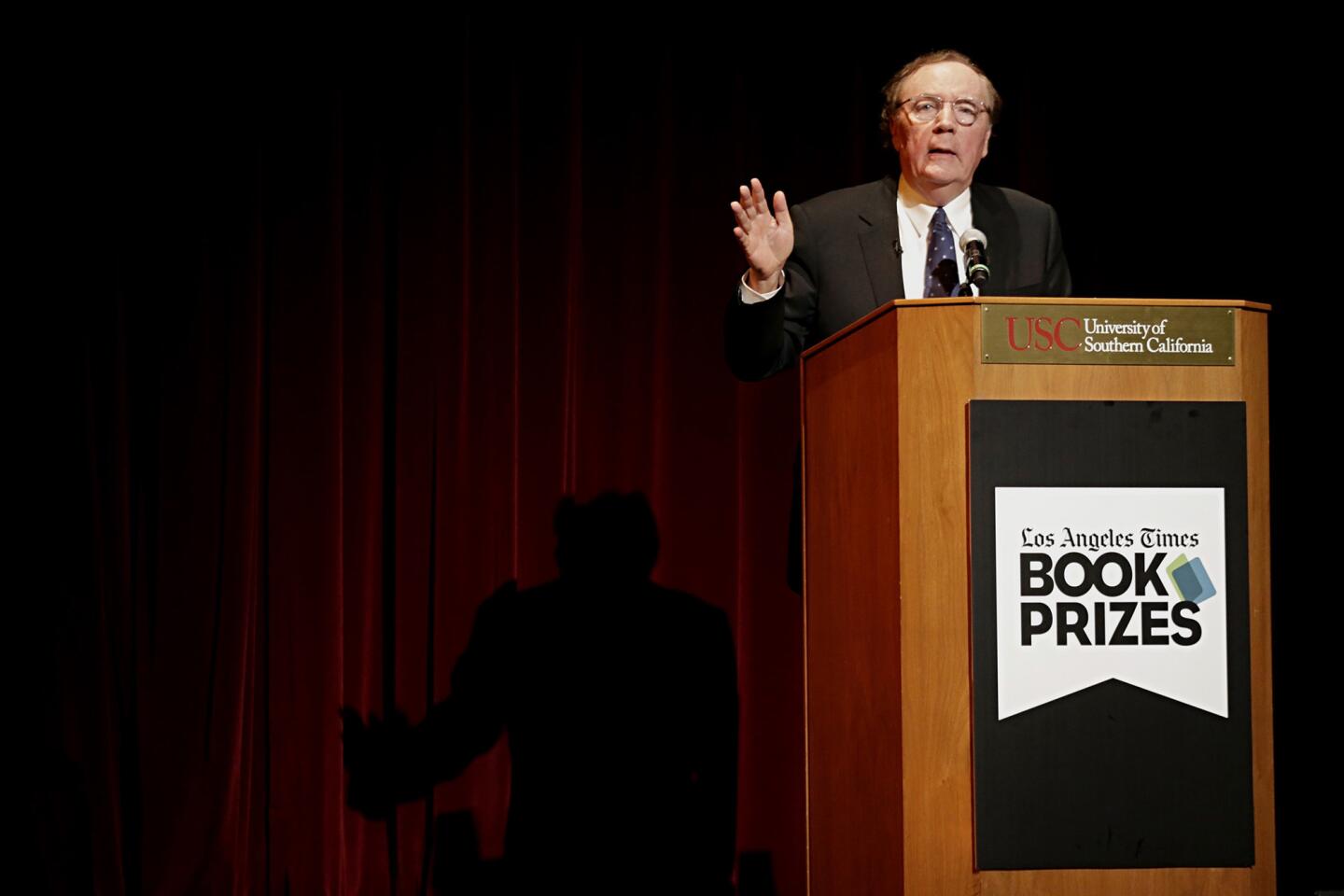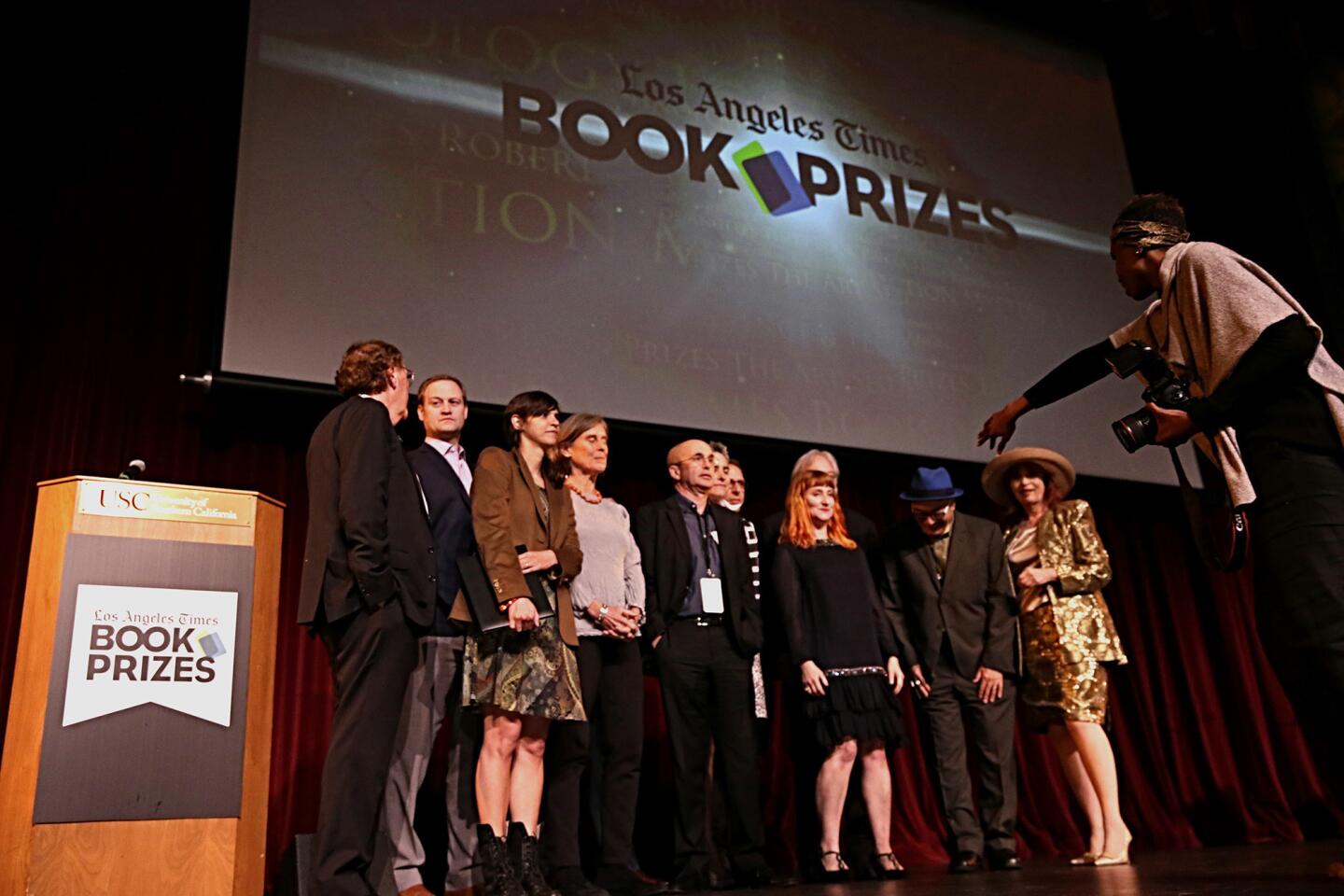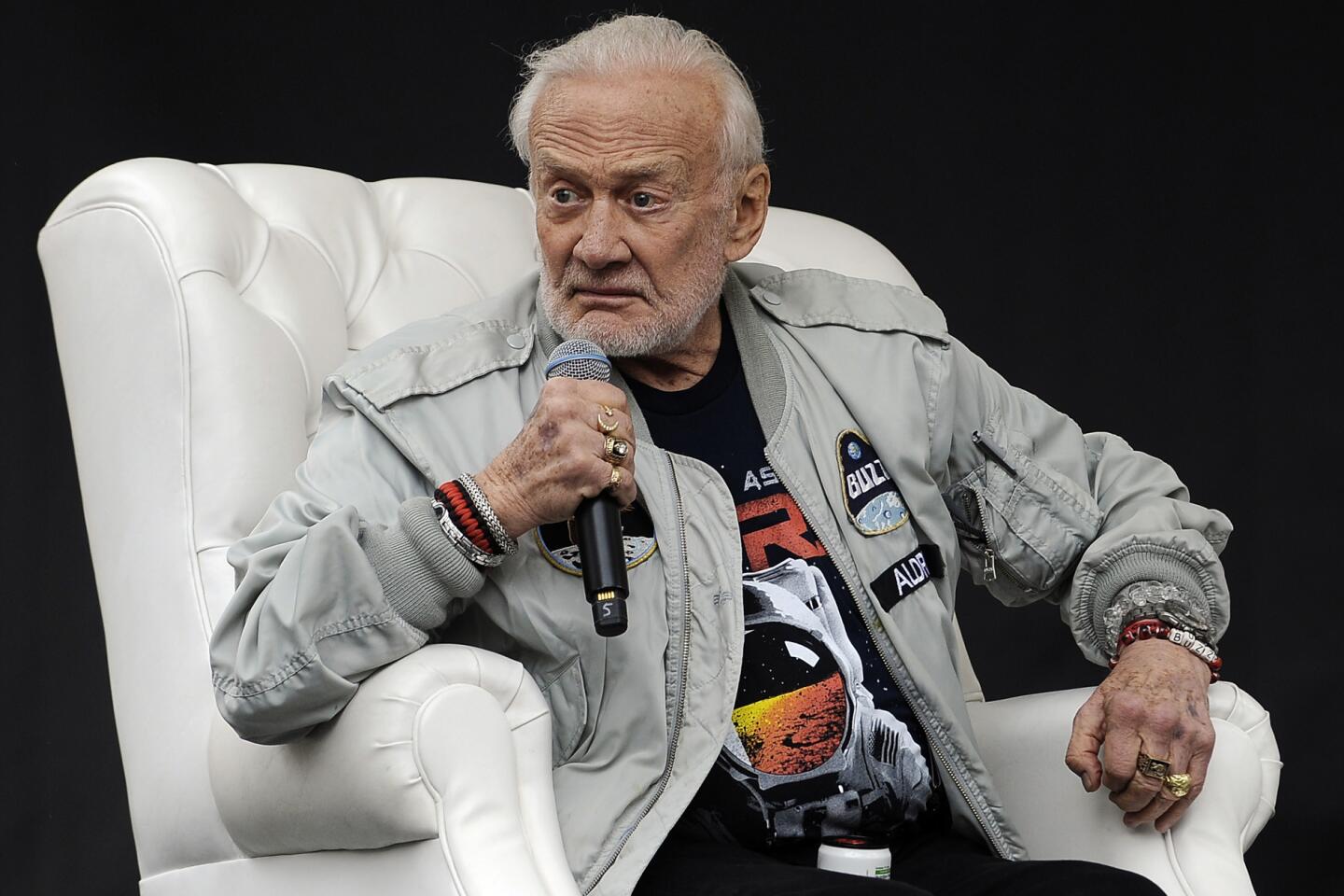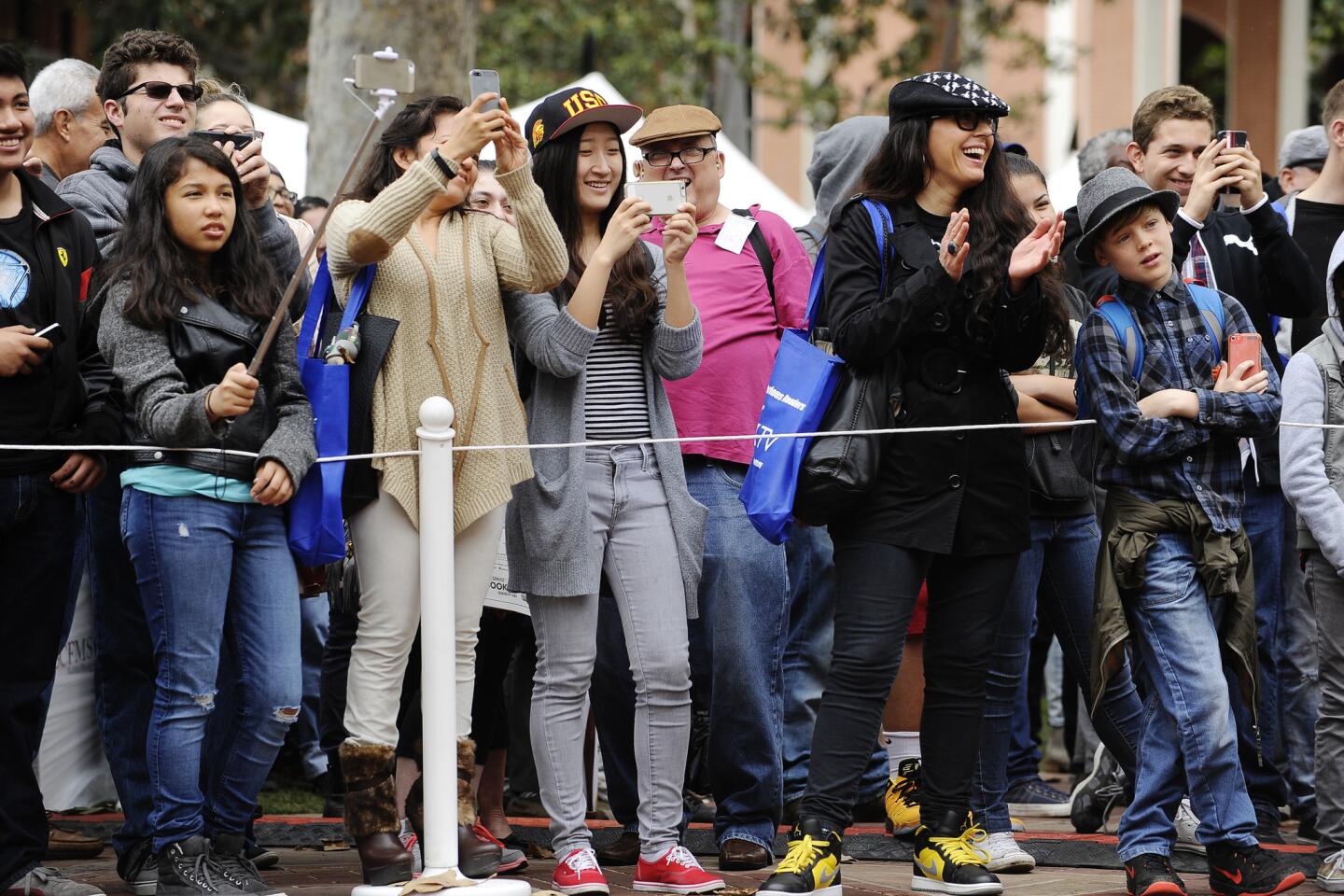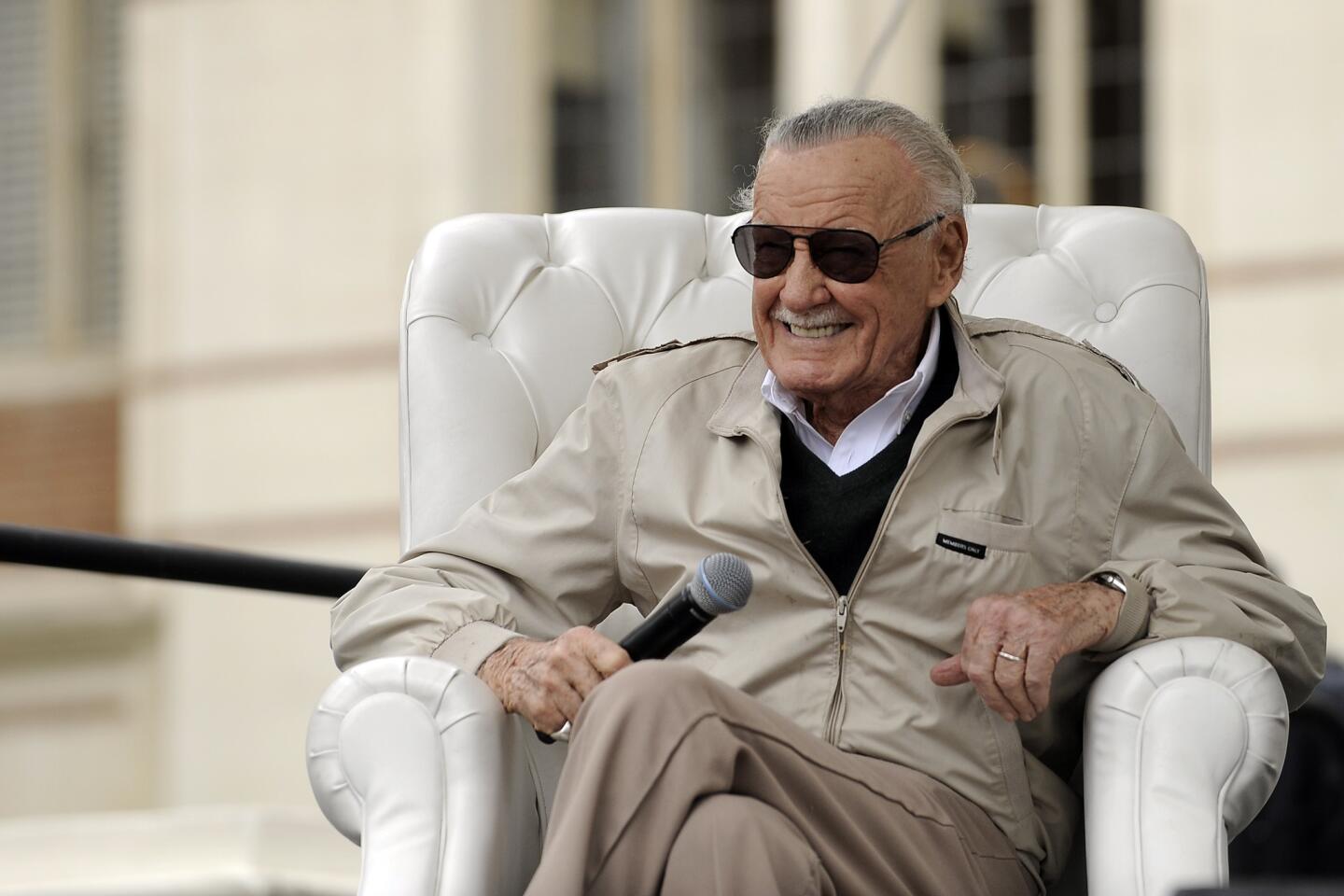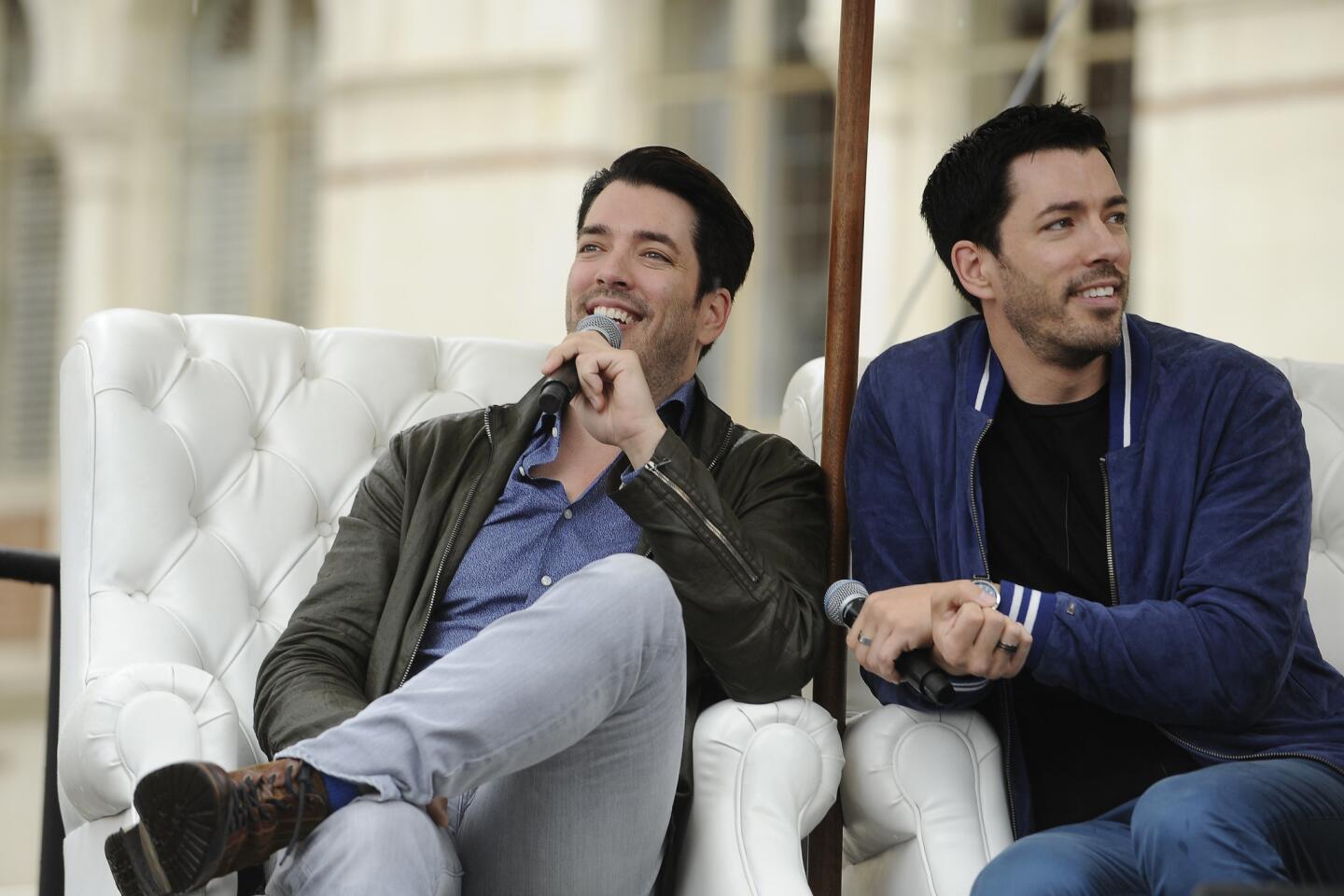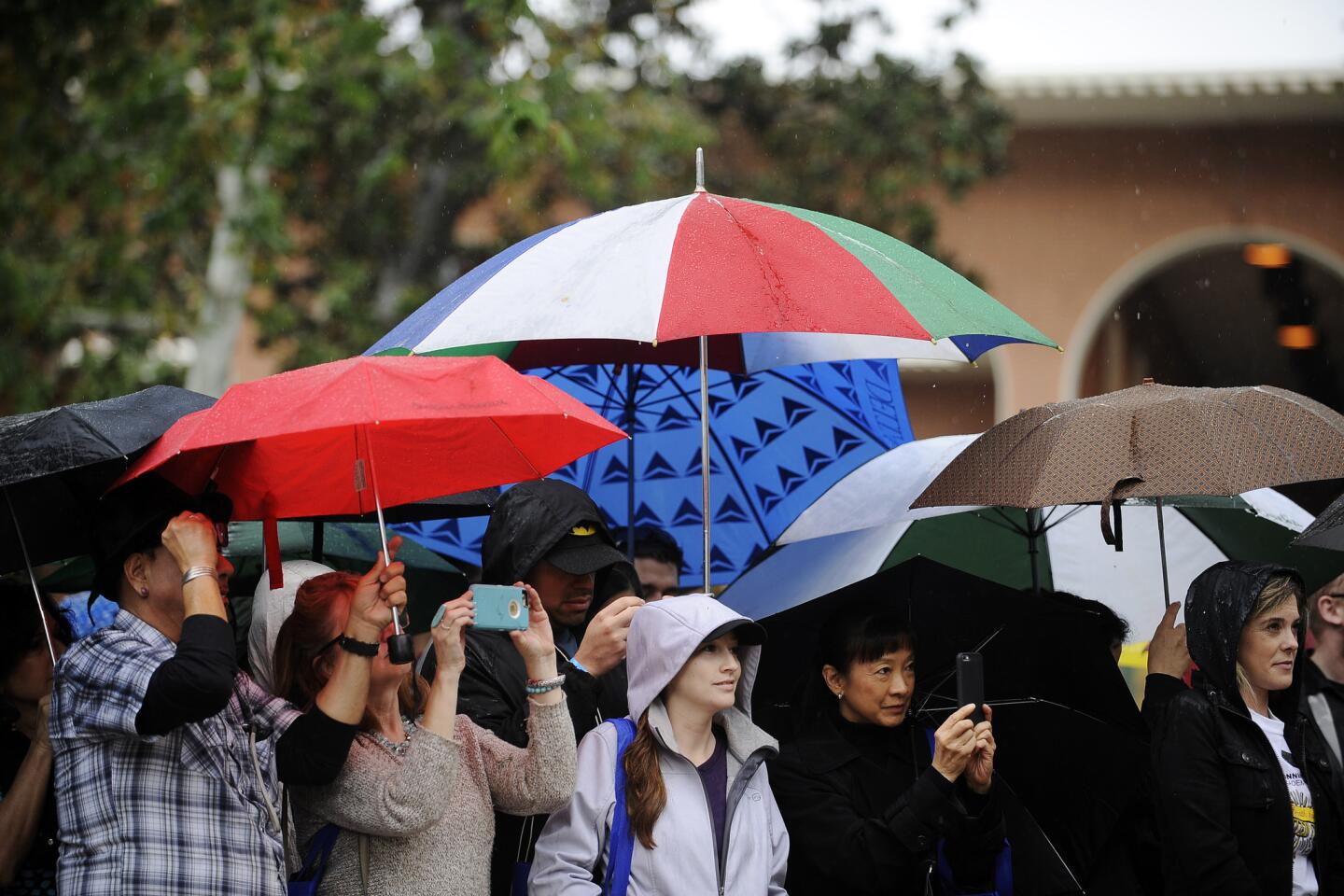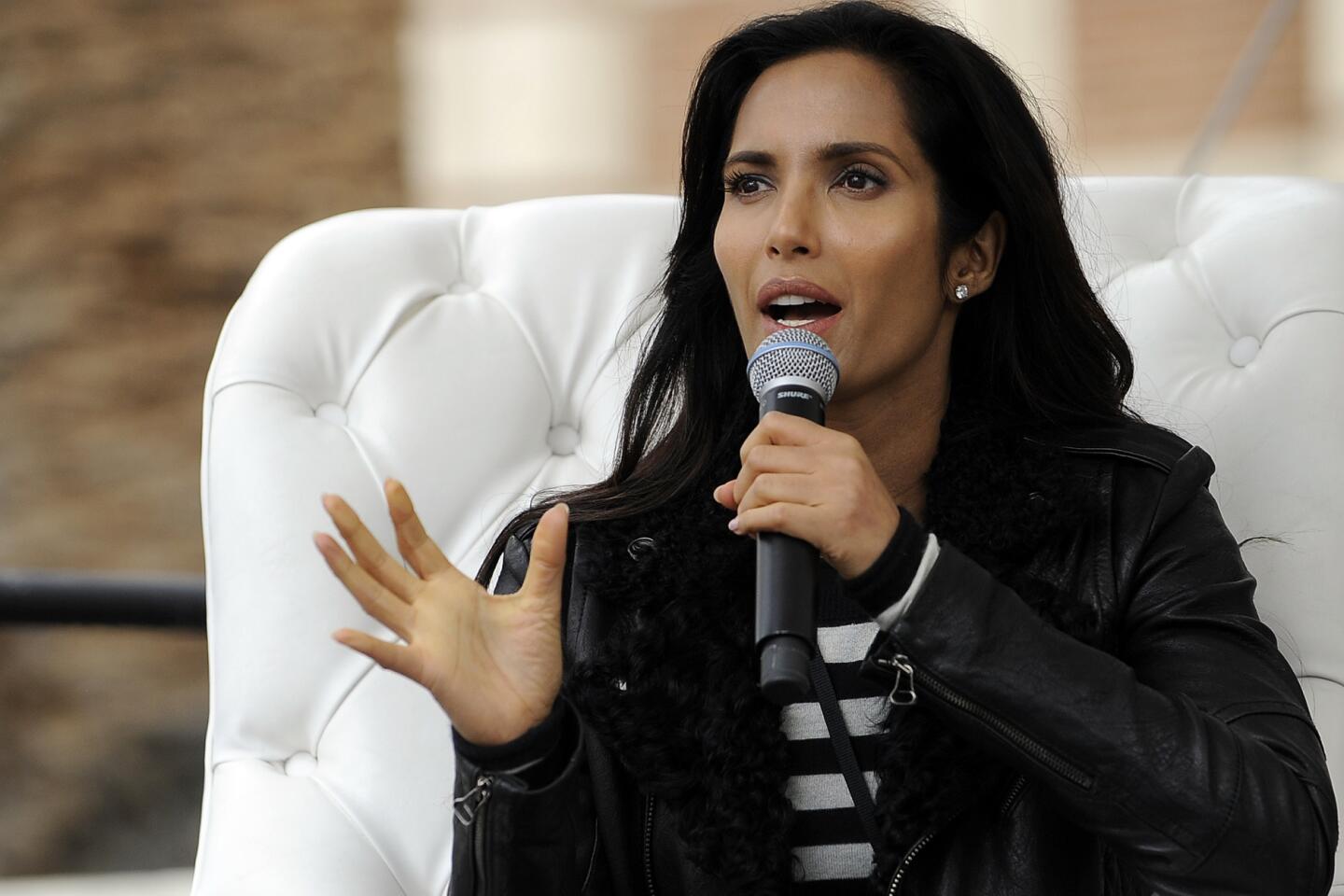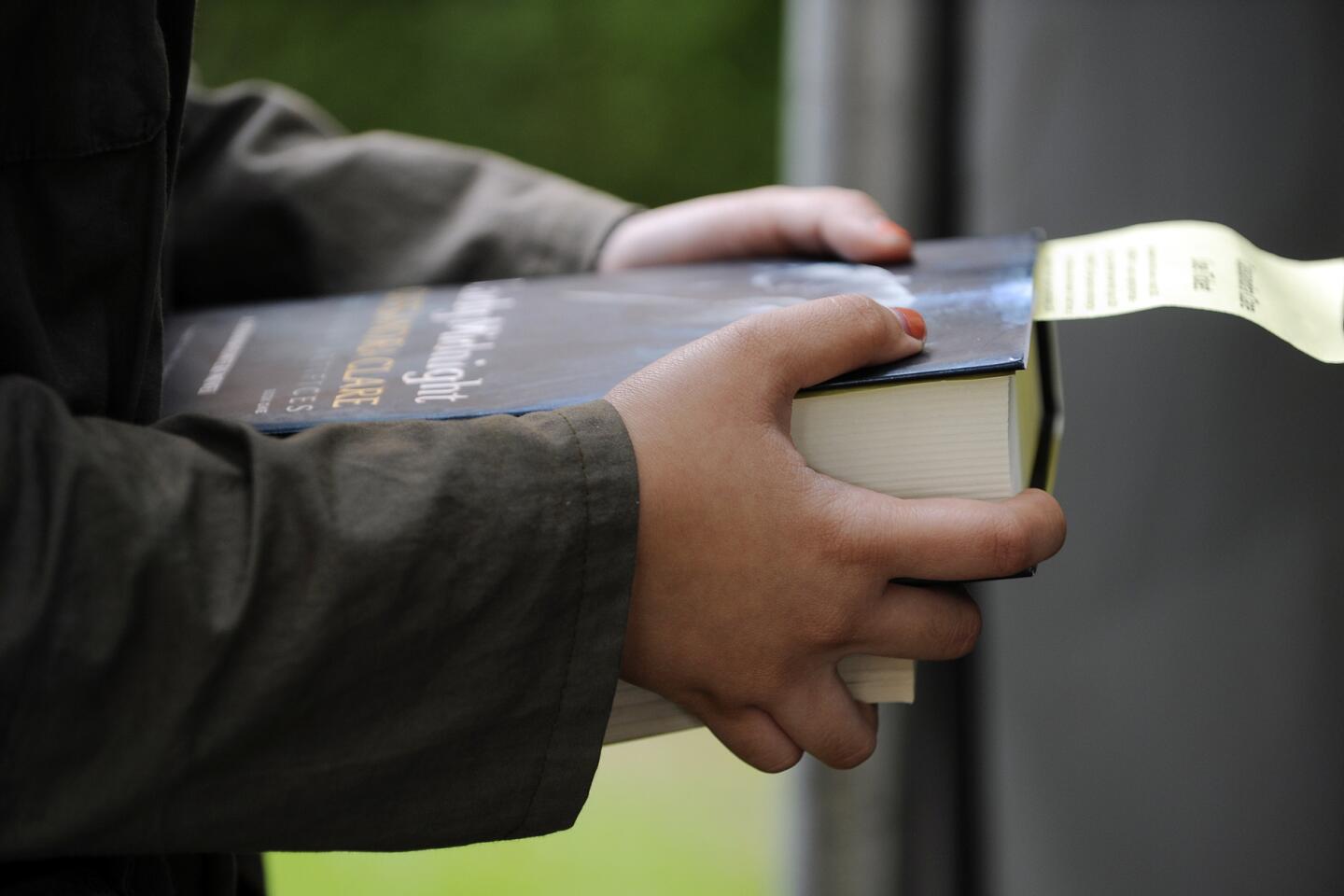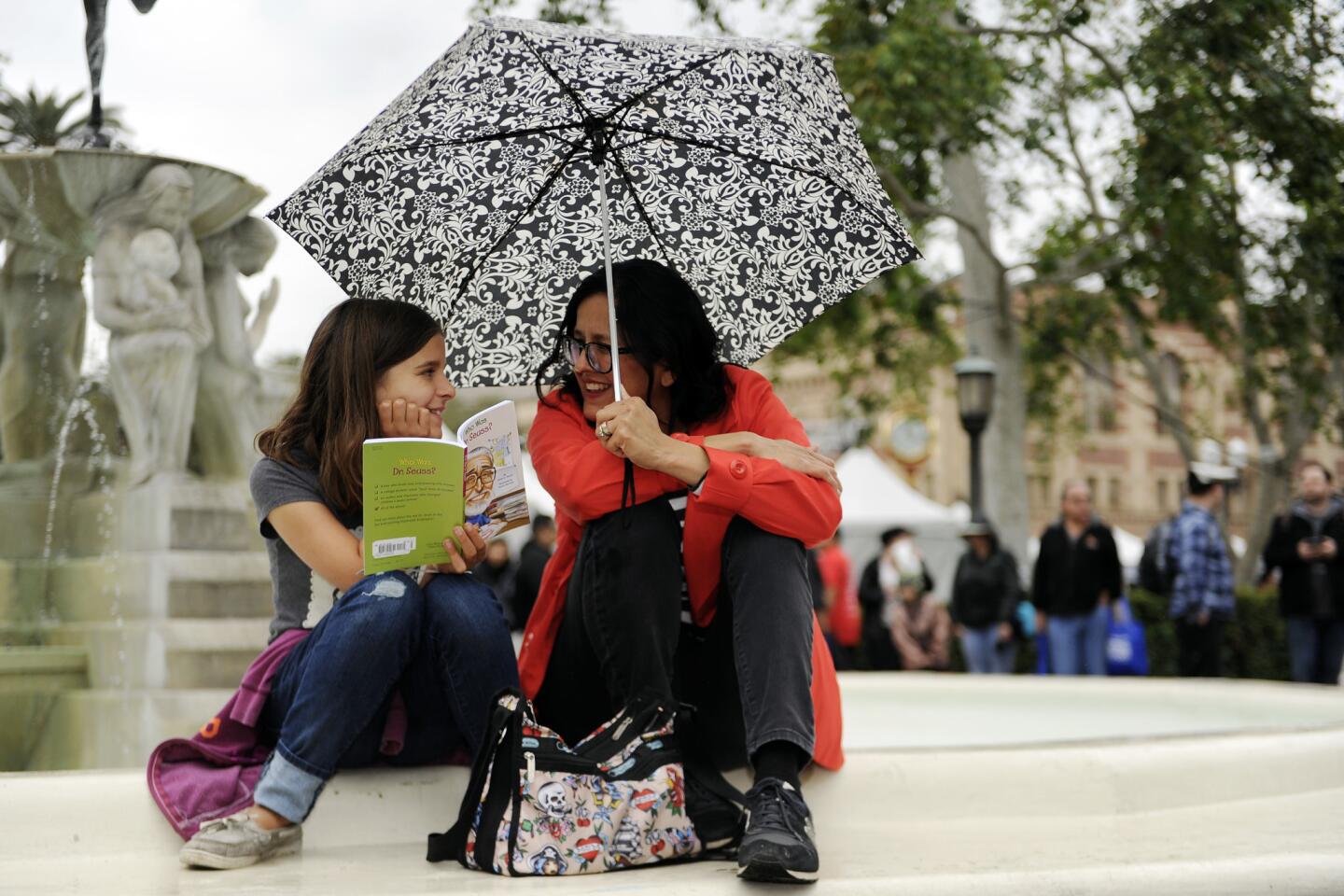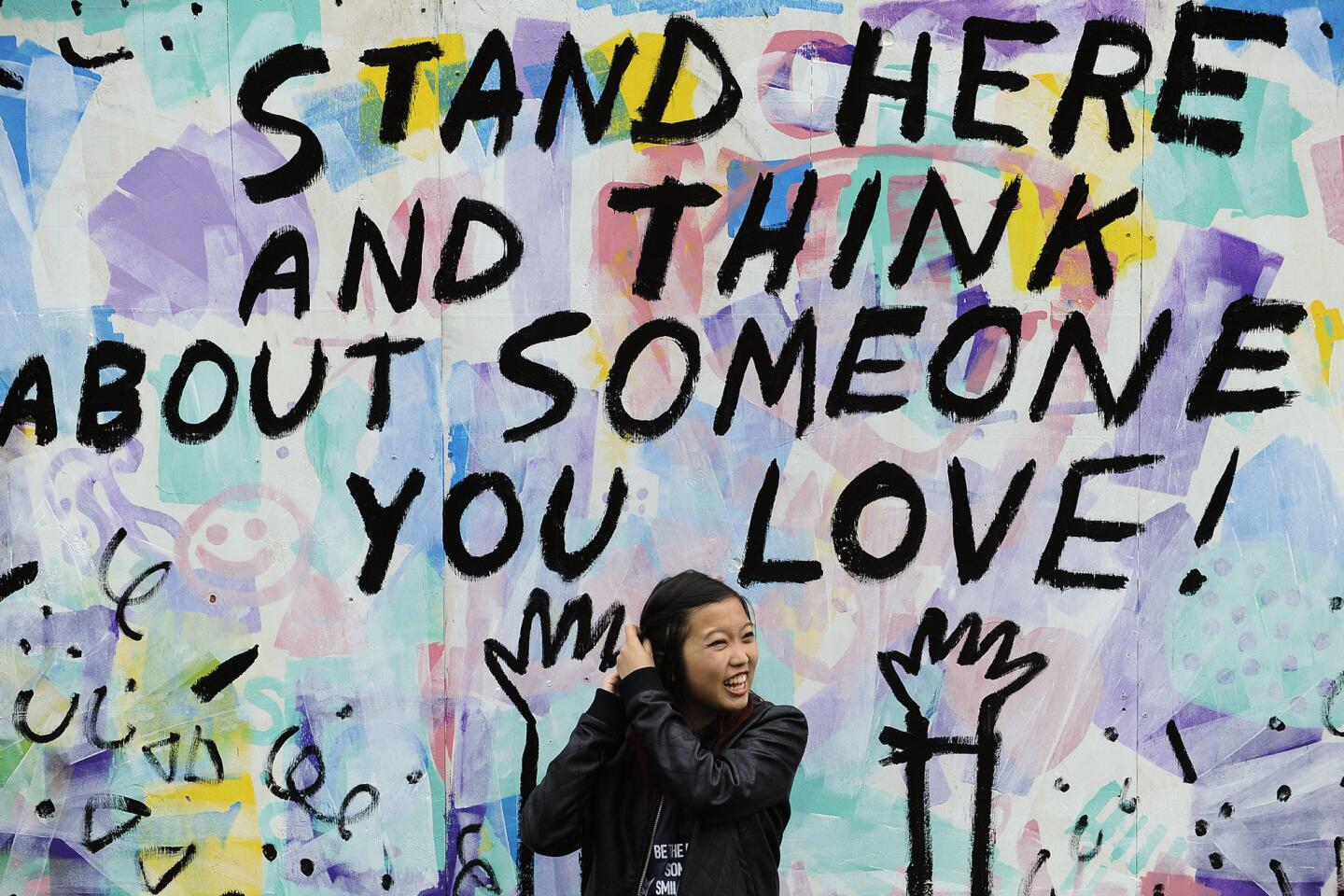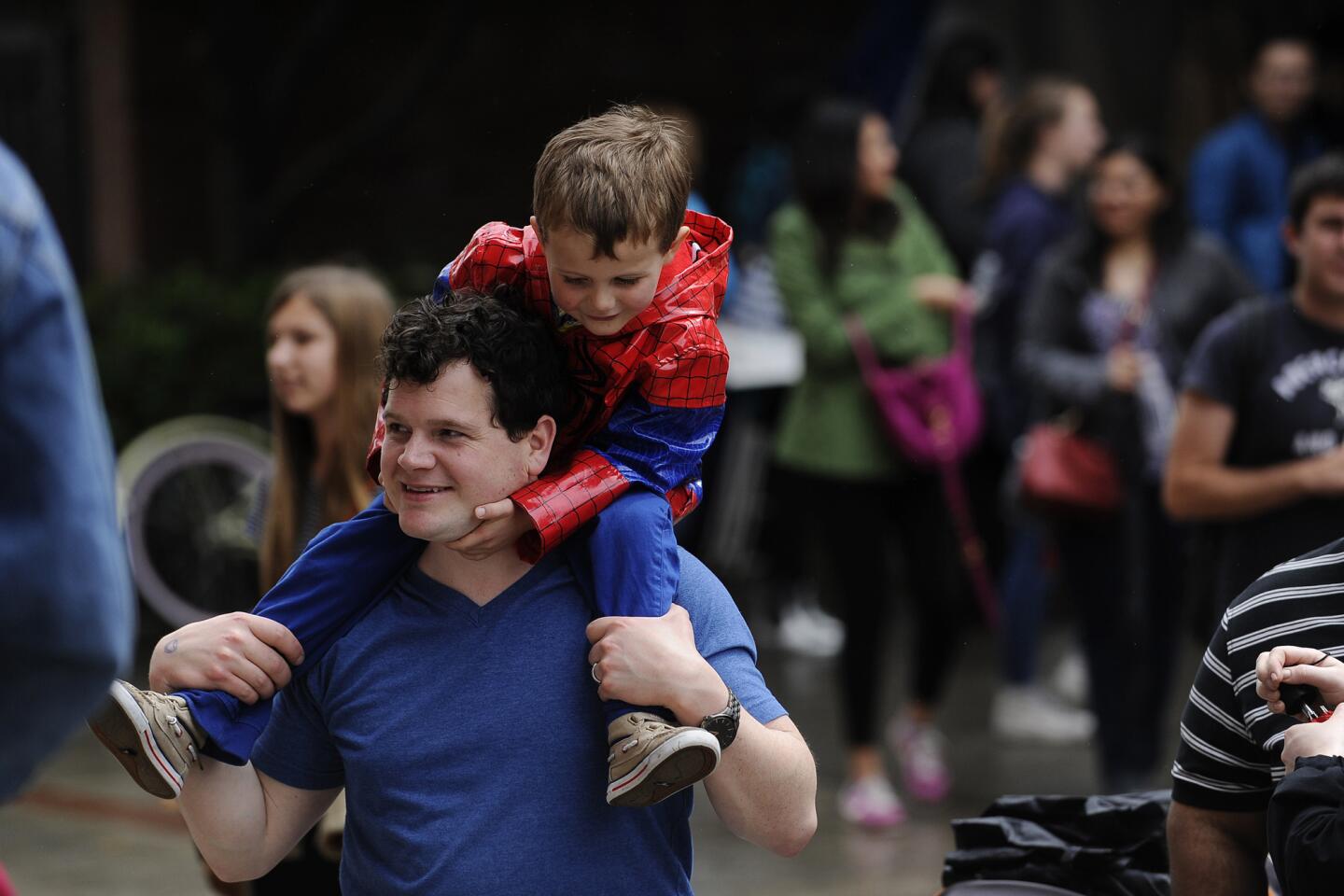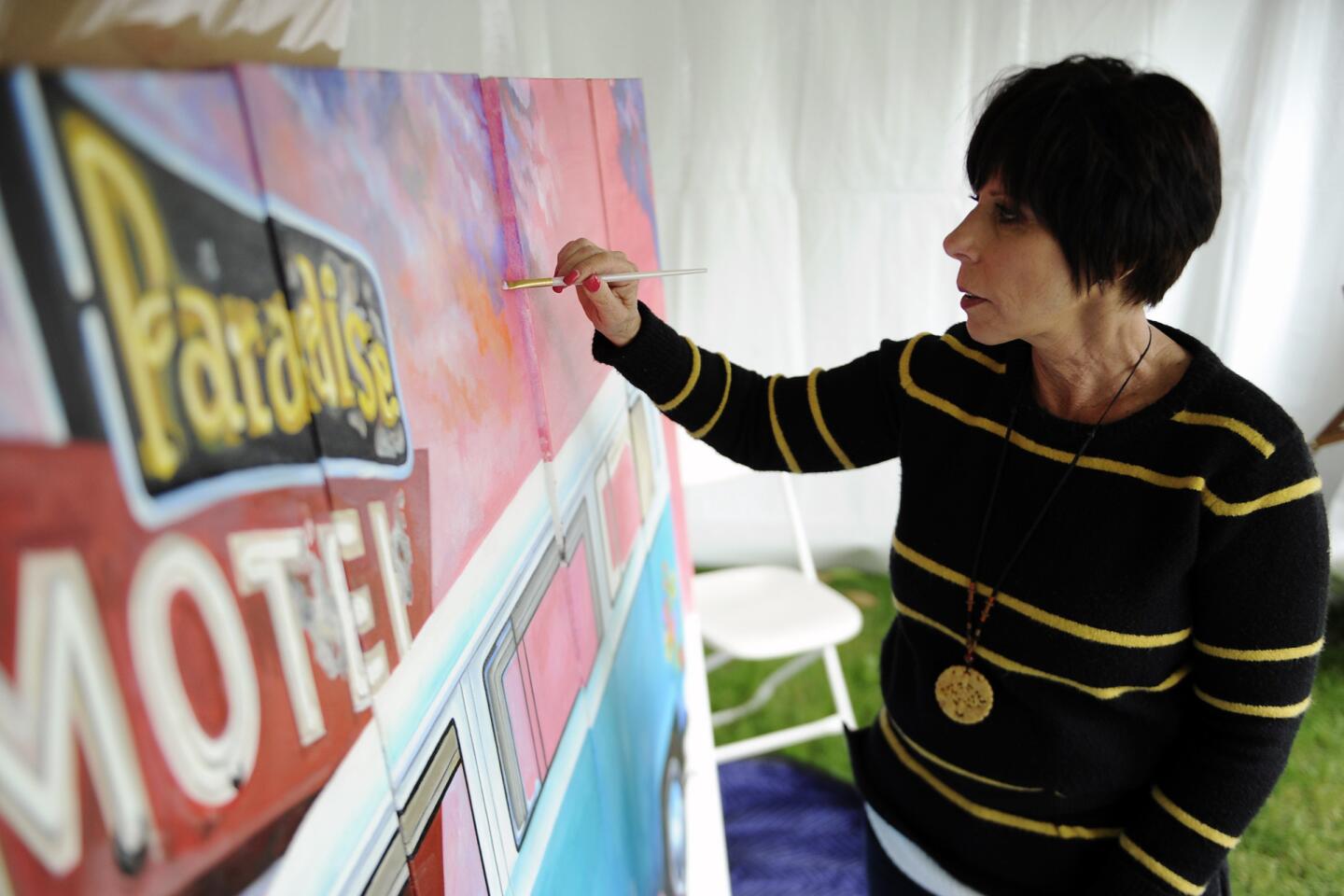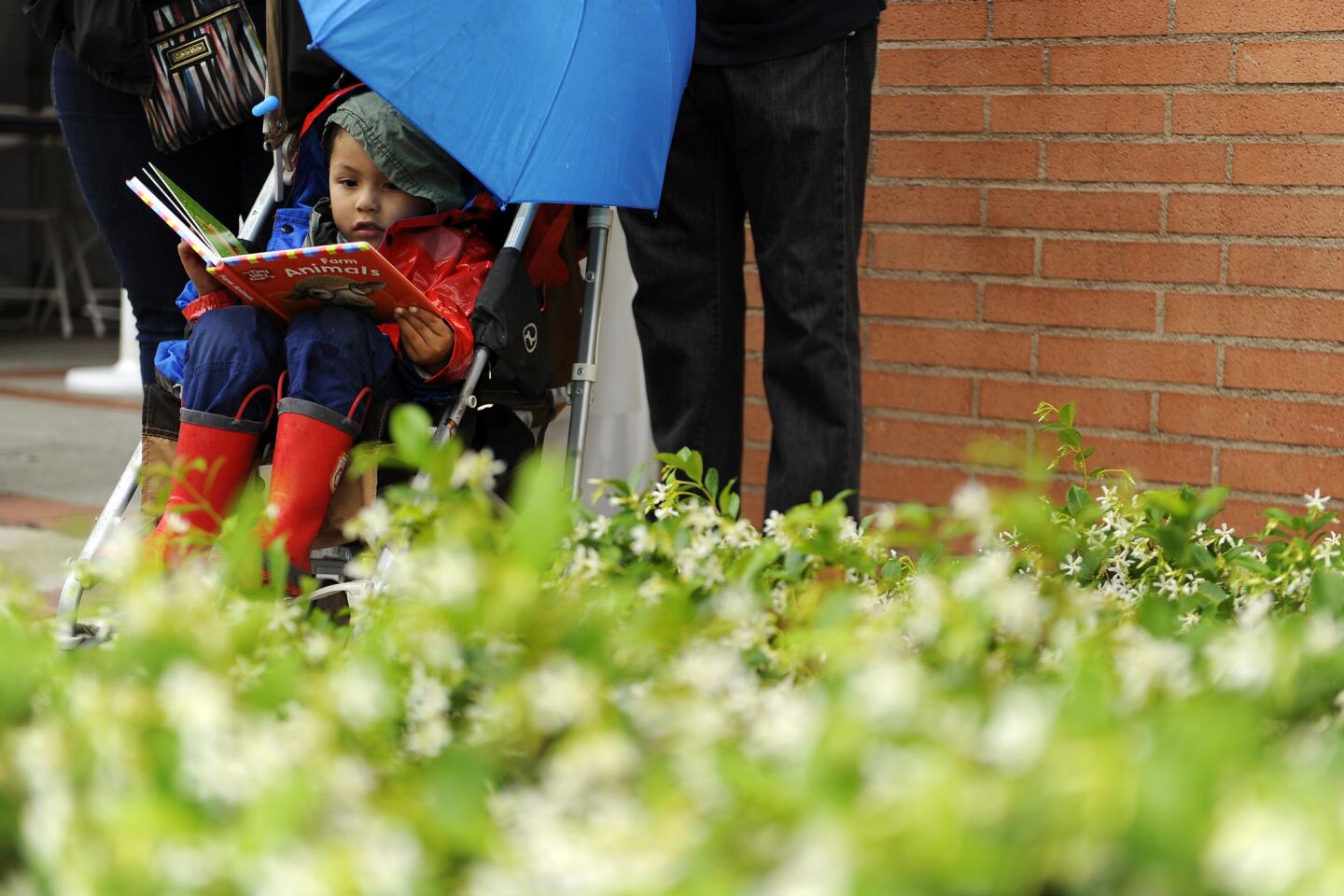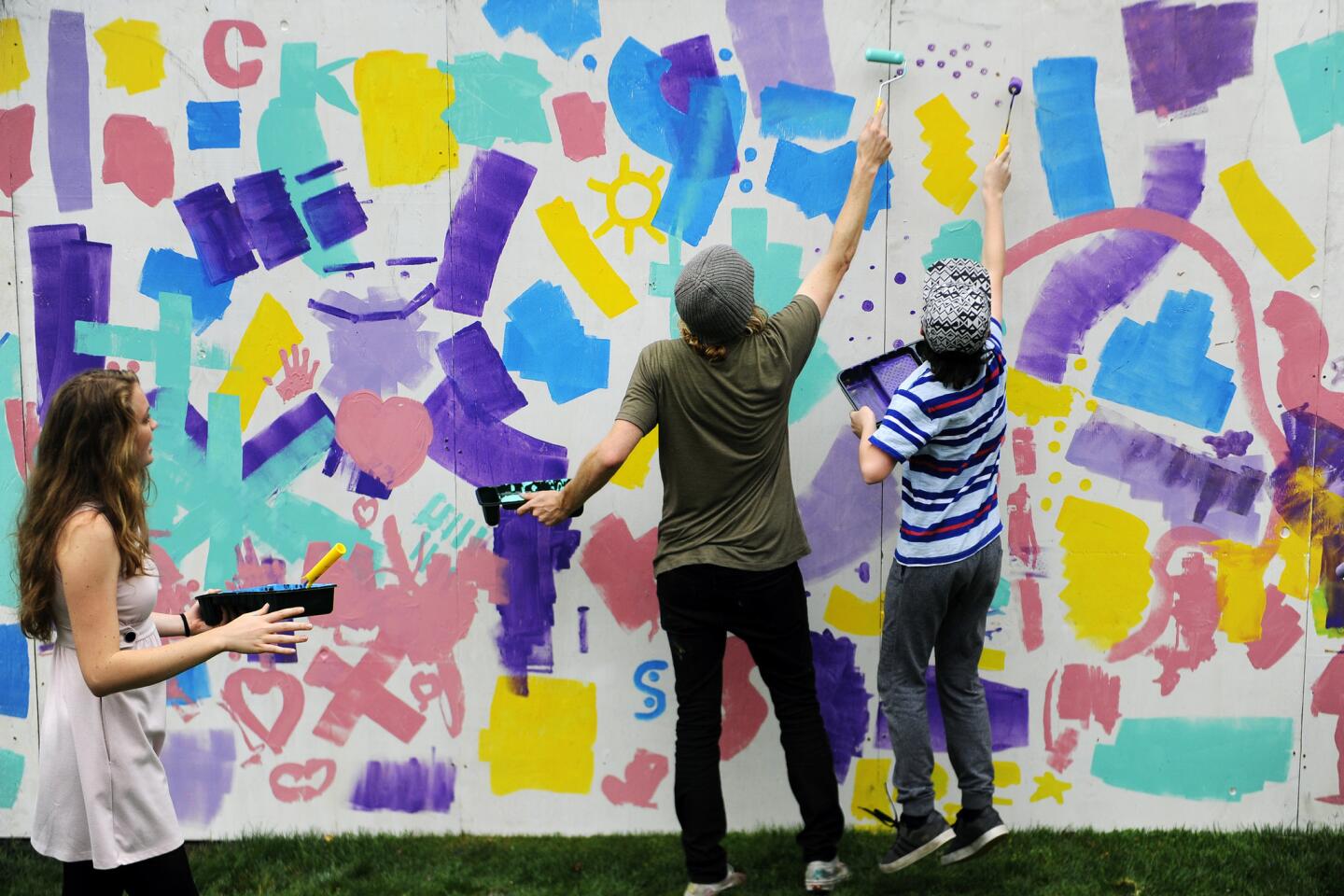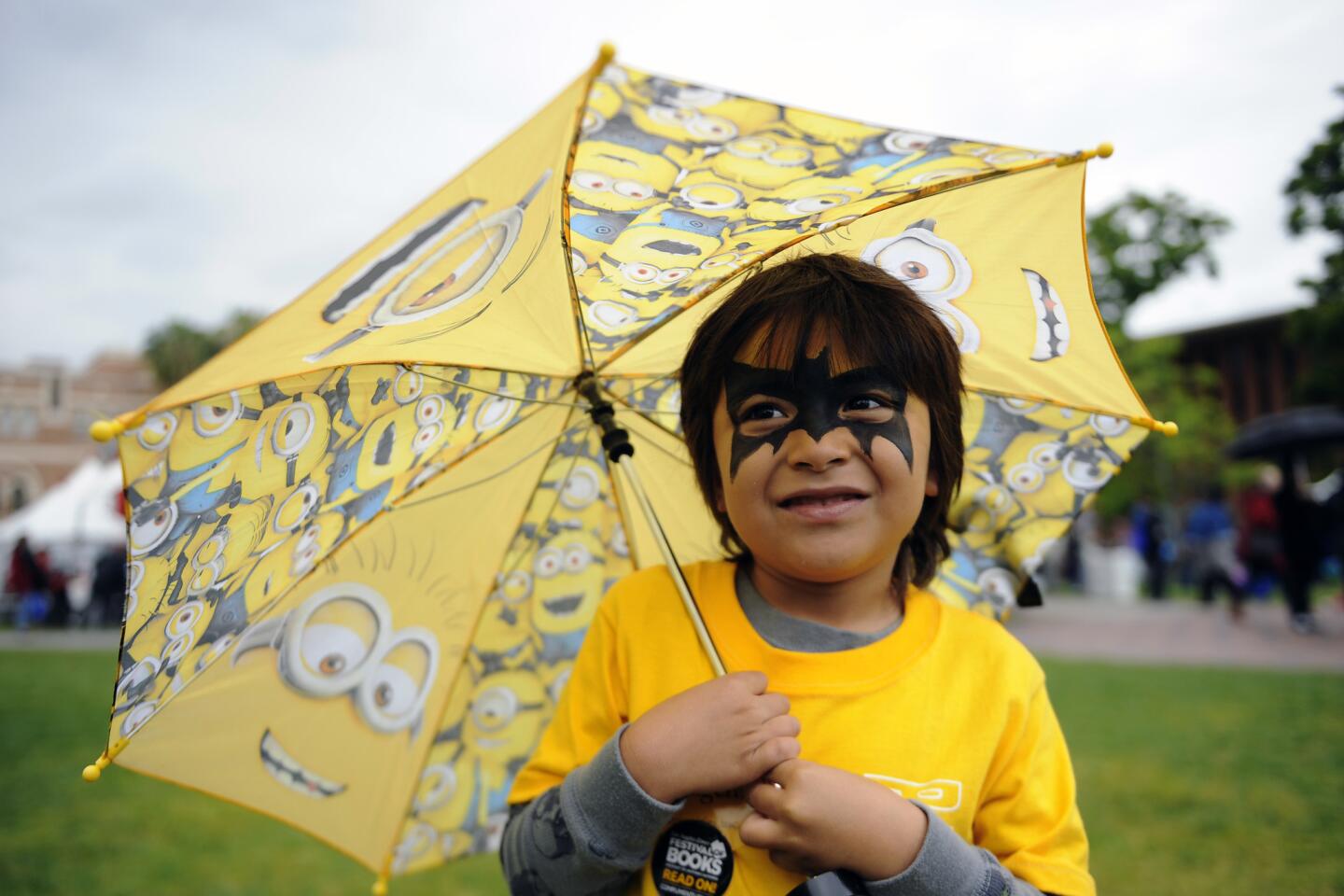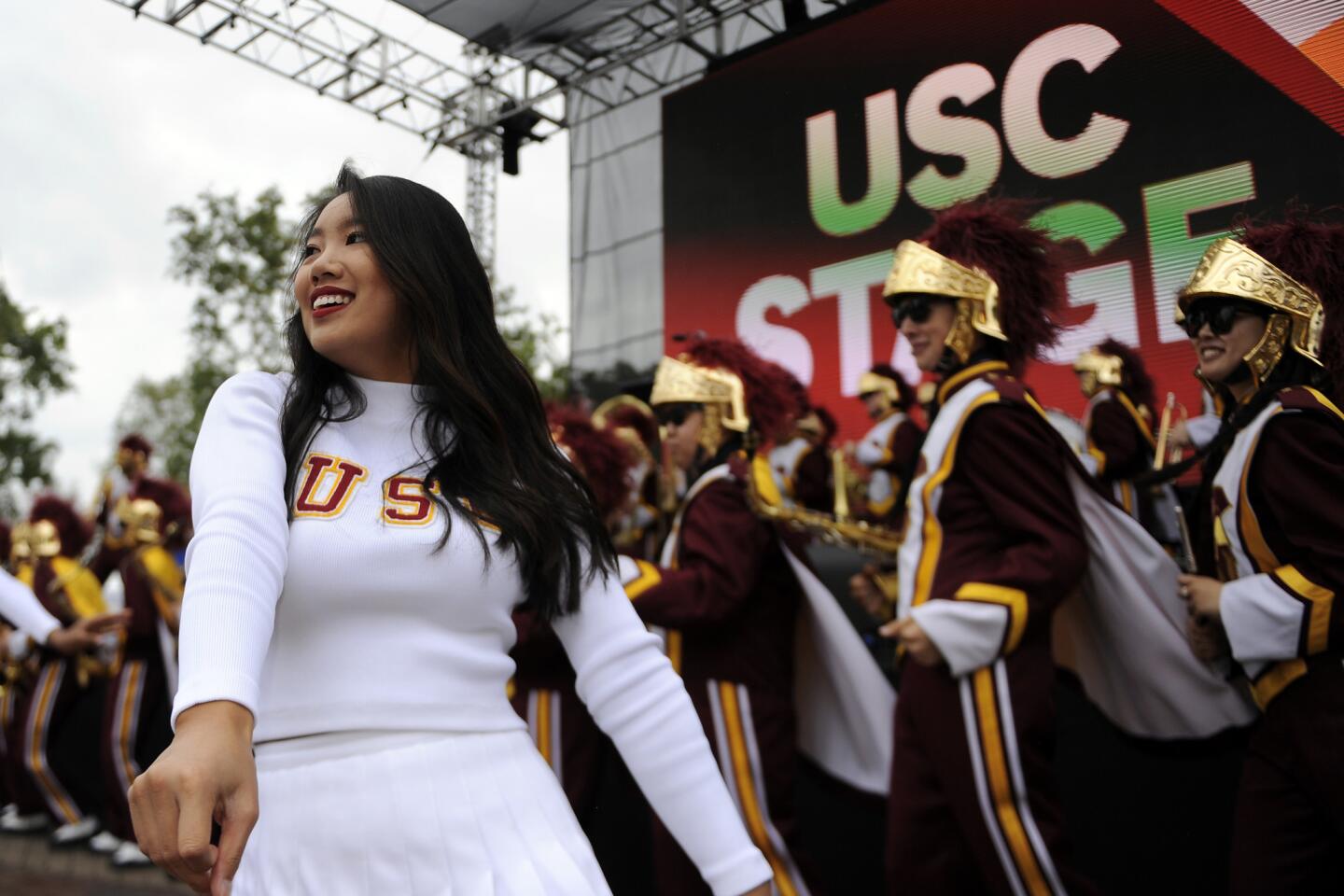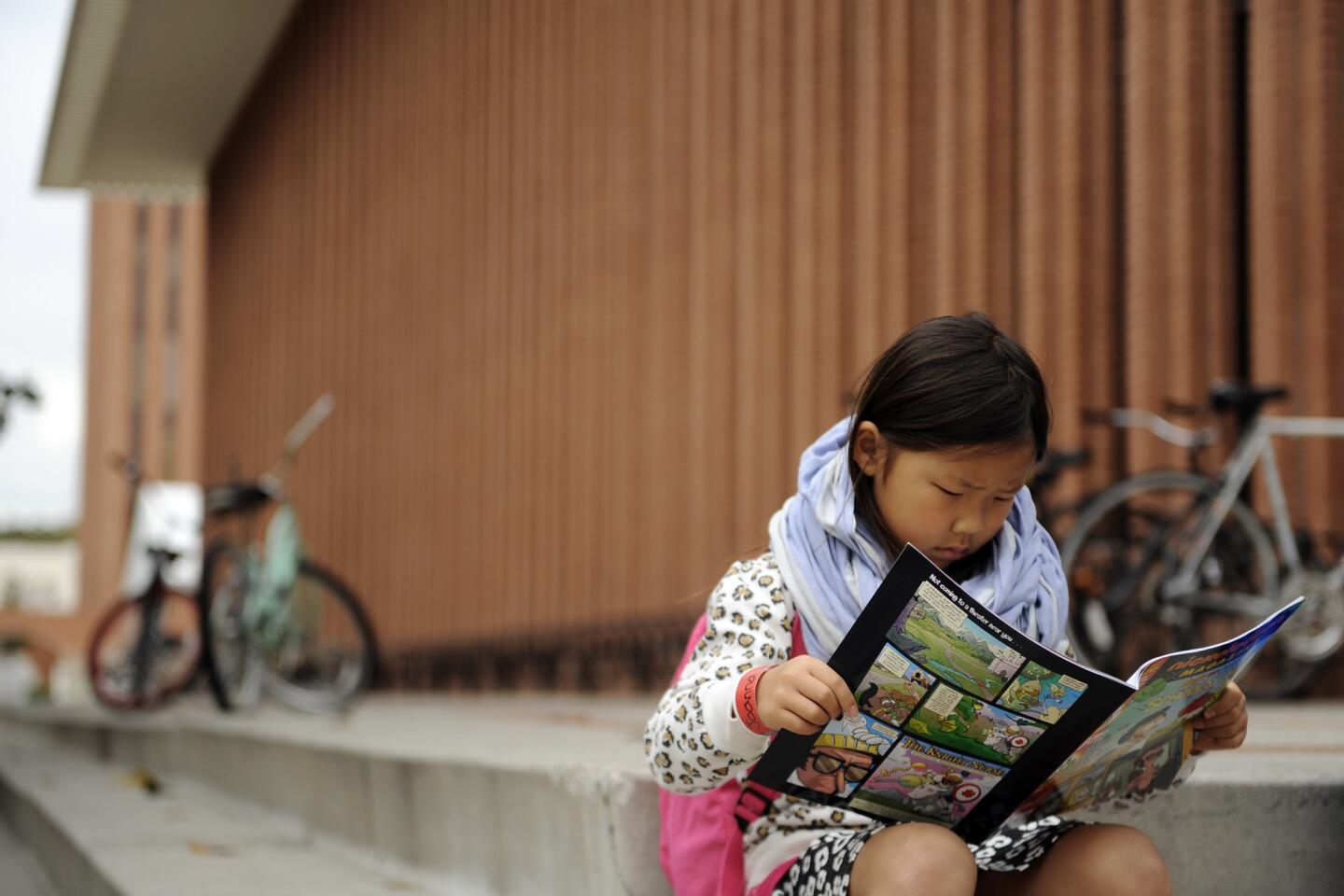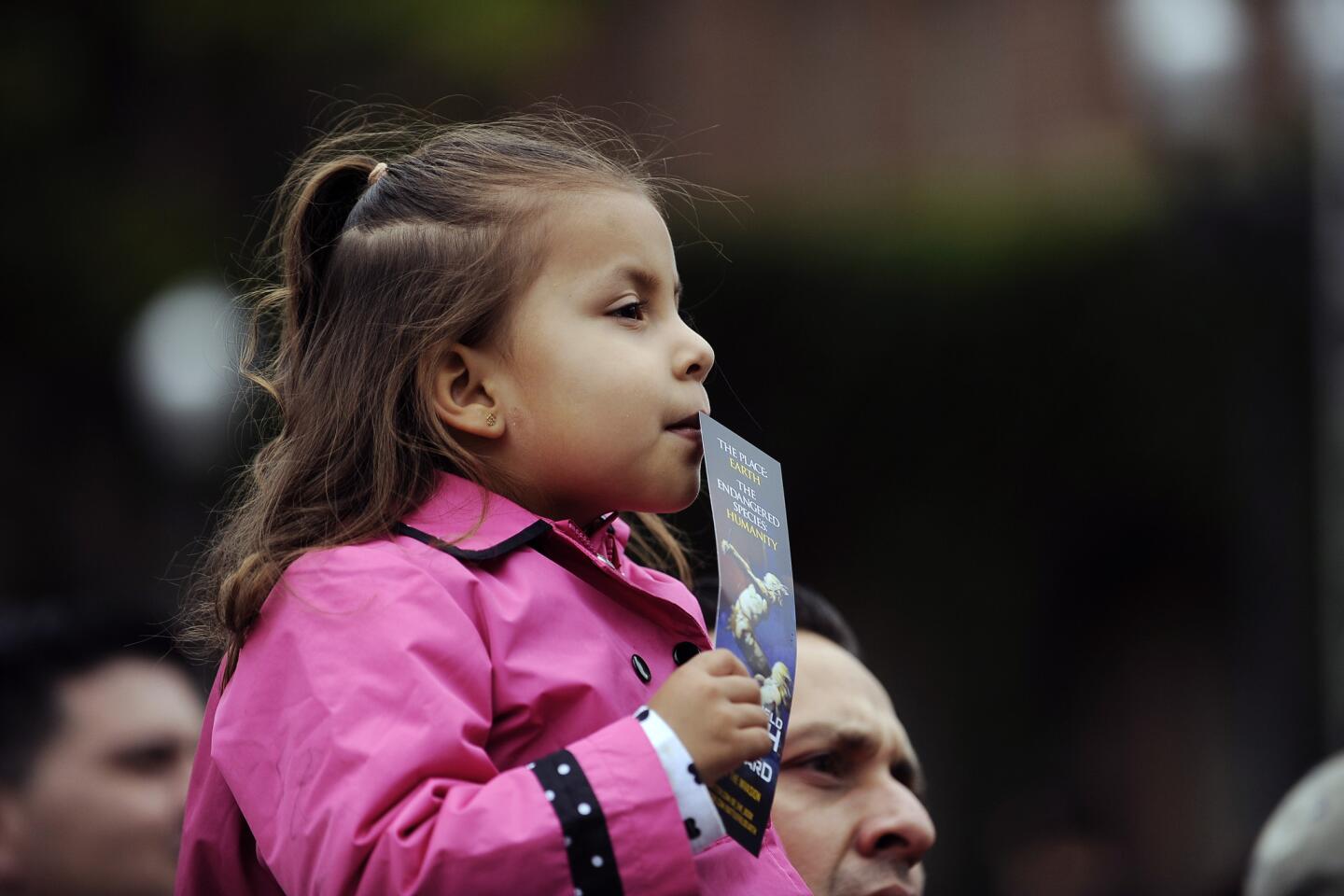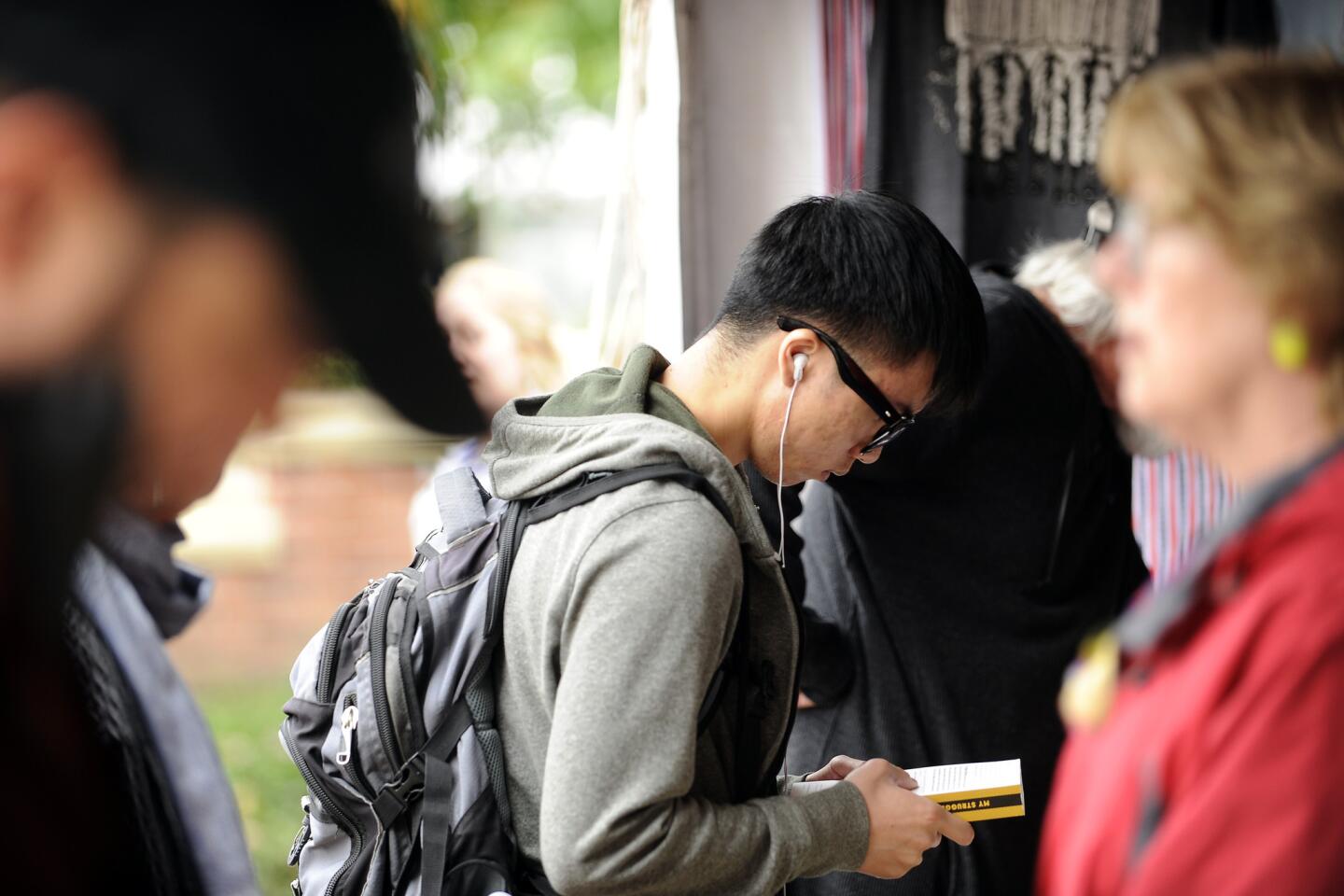The future of food among many topics discussed at Los Angeles Times Festival of Books
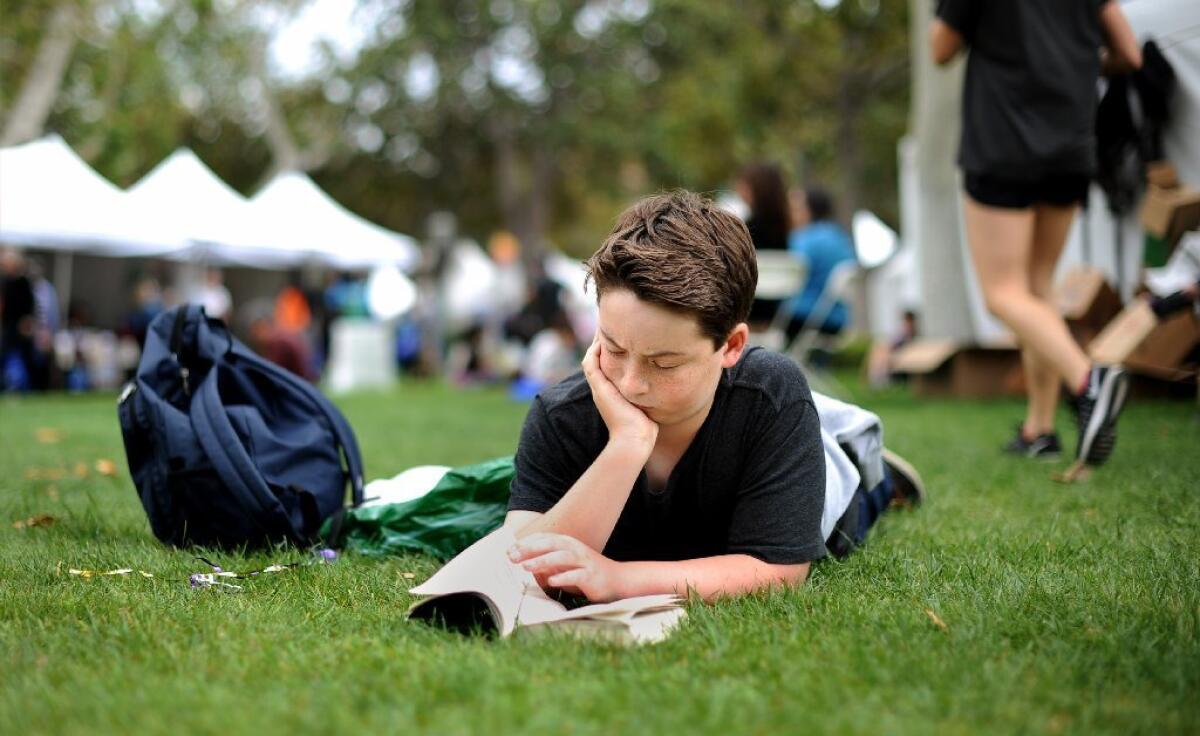
Jasper Joseph, 13, of Santa Monica, dives into a book at the Los Angeles Times Festival of Books at USC on Sunday.
- Share via
Describe the future of food in one phrase.
“Diversity,” said Jonathan Gold, the Pulitzer Prize-winning Los Angeles Times food critic famous for lifting hole-in-the-wall Cambodian or Oaxacan restaurants out of obscurity.
For Alice Waters, owner of Chez Panisse in Berkeley and the author of 15 books, the answer is taking care of the land — buying locally grown food and cooking it yourself.
Sarah Smith, who researches the future of food at the Institute for the Future, believes the answer is complexity — not one food tradition but “thousands of different futures for thousands of different people.”
The question was posed at the Los Angeles Times Festival of Books on Sunday by Mas Masumoto, a writer and organic peach farmer who moderated the panel on “Food Futures.”
Other speakers on the festival’s second and final day included “The Orchid Thief” author Susan Orlean; crime fiction writer Michael Connelly; and actor Titus Welliver, who plays LAPD Det. Harry Bosch in a TV series based on Connelly’s novels; young adult author Ransom Riggs; and religious scholar Reza Aslan.
Despite rain on Saturday, turnout was strong at USC on both days of the festival, which was free and open to the public.
Hillary Manning, a spokeswoman for The Times, estimated that attendance for the entire weekend was not much less than last year’s 156,000.
“We were thrilled to see that the community’s love of reading and books was not dampened by the weather,” she said.
One writer at Sunday’s festival is more widely known for his acting than his writing. But Henry Winkler, who played Fonzie on the popular television show “Happy Days,” has gained a following for his children’s books, co-written with Lin Oliver.
The main character is a boy named Hank Zipzer, “the world’s greatest underachiever,” who like Winkler has dyslexia.
With titles like “Barfing in the Backseat” and “The Curtain Went Up, My Pants Fell Down,” the books appeal to the silly side of children and are written in a special font that is easier for dyslexics to read.
Some in the audience were too young to remember The Fonz, but they laughed at Winkler’s schtick.
For a moment, Winkler grew serious about the unlikelihood of becoming a published author after struggling to read as a child.
“I can’t believe there’s a name on it, and it’s mine,” he said of his books, urging the children to recognize the greatness in themselves.
Then, Winkler, dressed in a magenta sweater instead of a leather jacket, pleased the grownups by trotting out his Fonzie voice.
“You can’t wear a fart T-shirt to school. It’s uncool,” the Fonz said.
Some book festival attendees browsed the merchandise stalls and dropped in on panels with no particular agenda in mind. Others, like Veronica Lopez and Somer Mendenhall, were focused on a favorite author.
The two friends from Corona waited in line to have their books signed by romance novelist Sylvia Day, who would later speak in a question and answer session.
“She’s just got a great way of telling the story,” said Lopez, 32.
“She really pulls you in,” added Mendenhall, 31.
Throughout the panel on the future of food, Waters espoused her back-to-basics philosophy and criticized the food industry.
Waters hopes that in the future, people would still cook meals from scratch, with ingredients from local farmers or their own gardens.
“I hope they aren’t just watching it on TV and eating some fast food while they’re doing it,” Waters said. “The food industry will tell you that you can have the thing delivered to you or have the ingredients delivered to you. My great pleasure is going to the farmer’s market and meeting the farmer.”
In response to an audience question about synthetic meat, Gold said he doesn’t see it in his future.
He’s heard it tastes dreadful. Nor does he see himself becoming a vegetarian, citing his love for guanciale, or cured pork jowl.
“I think we can go a long way towards making sure our animals are healthfully and sustainably raised so that they just have one bad day,” Gold said. “And that we eat like the rest of the world and use a little bit [of meat] as a condiment rather than eating a giant slab of something.”
More to Read
Sign up for Essential California
The most important California stories and recommendations in your inbox every morning.
You may occasionally receive promotional content from the Los Angeles Times.
